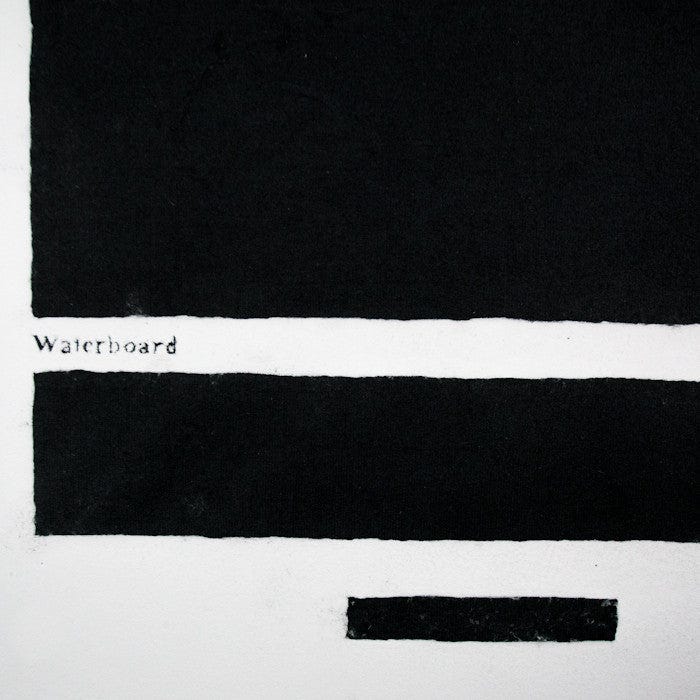
I’m about to show you something I was never asked to write, but I wrote anyway.
And as a result, the client bought it,
The city of London saw it,
And The Spirits Business Awards nominated it
for Best Marketing Campaign in 2024.
Technically, I’m not even allowed to mention it…
…
Here’s what happened…
Last year, a colleague asked me to review their strategic write-ups for our bourbon client.
I found out this bourbon’s target audience loved discovering hidden gems, and that insight alone was enough to trigger a very strange concept for a very strange brand campaign to pop into my head. The problem was, this client didn’t ask for a brand campaign—they asked for some strategic direction.
I wrote down the idea anyway.
I wrote several brand manifestos.
I wrote dozens of headlines.
I even drew up some very (very!) simple artwork.
I showed some team members, and they liked where I was headed. So, the next day I showed my Chief Creative Officer.
“The client has to see this,” he said.
And we showed them, too.
Three months later, that strange little idea I cobbled together in PowerPoint was painted on a big brick wall in London. We developed the campaign across a variety of physical-and-digital channels. And less than a year after, it was nominated for Best Marketing Campaign in 2024.
What the f**k was I thinking?
Well, I knew this bourbon’s audience loved to discover hidden gems.
I also knew that the better a gem is hidden, the better it feels to discover.
So, I didn’t want to make the logo bigger (as clients often ask).
I painted over it.
I didn’t tell them, “Buy Four Roses!”
I told them, “Don’t mention it.”
Why?
Because the fewer who know,
The greater the discovery.
Sometimes, we give away too much…
As a result, our words start to feel like a monologue, while the best stories—whether novels, screenplays, or advertisements painted on a big brick wall—feel like a dialogue between you and your reader. The best stories strike a balance between giving away information and withholding it. That balance is very delicate, but when we get it right, our stories become 10x more engaging and 10x more likely to stick with the reader.
Why?
Because we made them work a little.
We made them part of our story.
Instead of spoon-feeding them every ounce of information, we gave them some clues, and left them some space, allowing them to enter our story on their own volition. Readers love that (especially when that little bit of work doesn’t feel like work). Because psychologically, they assign greater value to the story, the advertisement, or whatever message we want to give them.
Think of it this way:
Why would this bourbon cover their logo?
Why would they tell people not to talk about it?
Because doing the opposite wouldn’t enable a true discovery.
And true discoveries feel amazing.
Hope this helps,
Jake
P.S.
The Free Challenger Copywriter Email Course
If you move people with creative copywriting, then you would love my free 5-day email course: The Challenger Copywriter. It’ll walk you through how I come up with big ideas like this one, and show you 50+ examples of “Challenger Copywriting” along the way.
See More of the “Don’t Mention It” Campaign
Want to see more of “Don’t Mention It”? Here’s a link to my portfolio.
Please note: Some of this is spec work and was used to show the client how the idea would come to life. That work was really beautiful, so I added some of it to my portfolio.
The Case Study
To read more about the strategy behind the campaign, go here.
For the award nomination, visit this page, scroll down, see under Best Marketing Campaign, “Spirit Cartel: Don’t Mention It.” (Spirit Cartel was my client)
Drink Four Roses Bourbon. Tell No One.
P.P.S
As always, if you have questions on creativity or how to get into copywriting, or whatever, feel free to drop me a message. I’m always happy to answer your questions.
Until then,
See you next time.








This an absolutely fantastic read, idea, execution. Way to trust your intuition and go for it!
P.s. now I'm thinking how can I come up with something half as cool as this :)
Brillinys brilliant!
I wonder if this correlates (this is what came to mind)- but in writing or reading a book as well, it takes the fun from it when you are handed all the information and suddenly carrying on with said book feels pointless.
As opposed to a “no way this would happen” book that you can’t wait to finish to see if maybe, you could be right or the writer is even more twisted